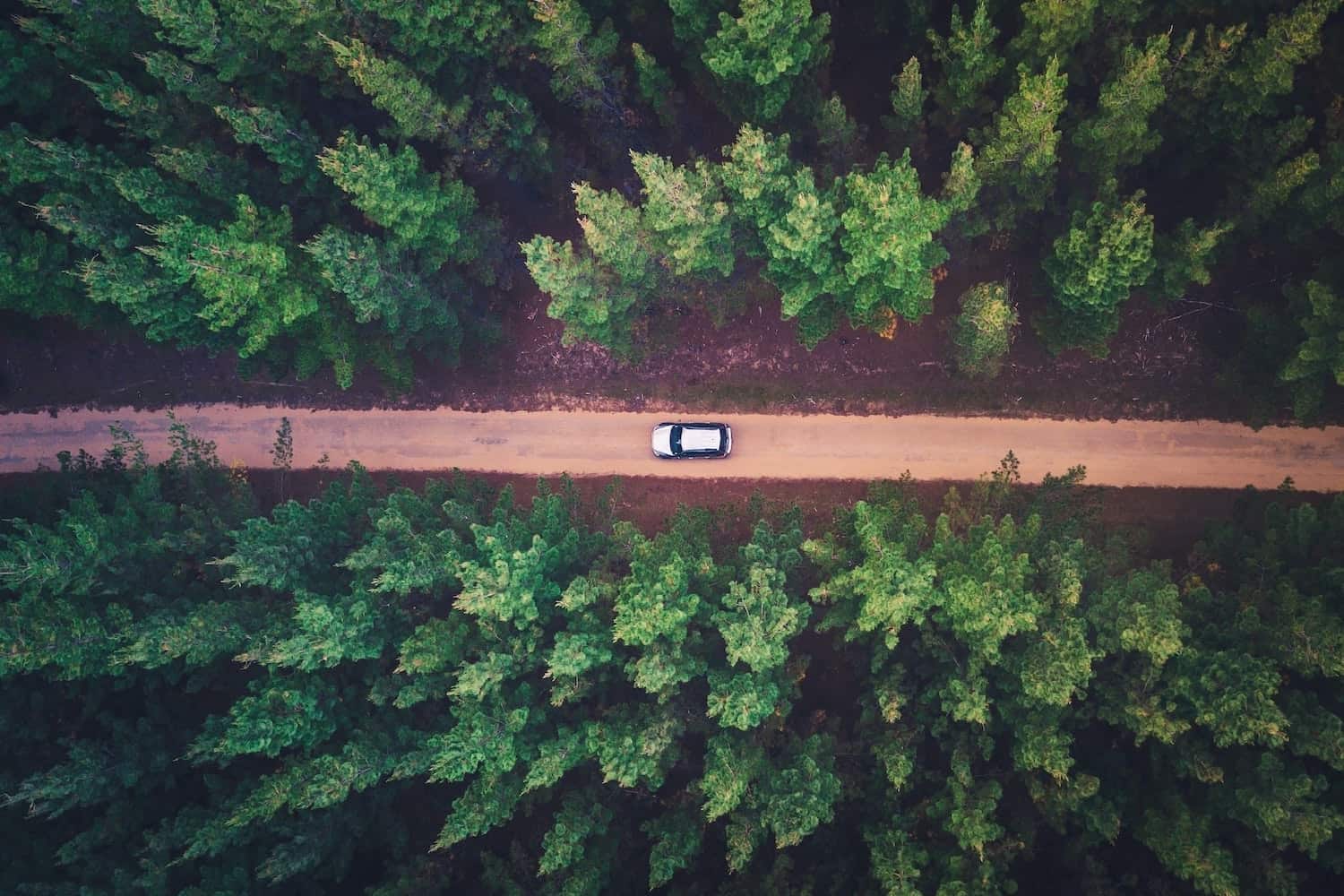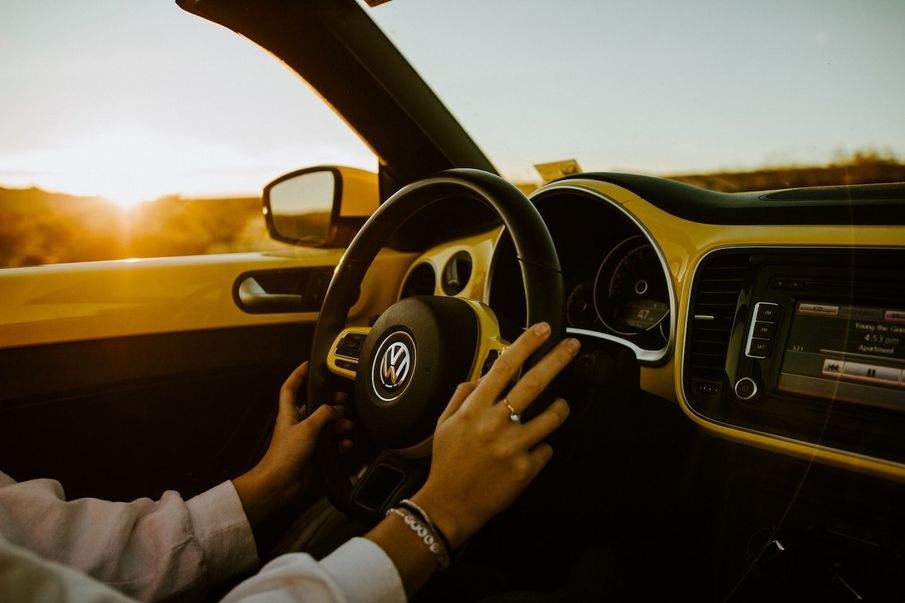Worried about getting back on the road after lockdown? Here are some tips to help ease the anxiety
If you’ve not been driving much over the past few months, chances are you might feel a little worried about getting back on the road when lockdown restrictions ease.
And, if you are suffering from driving nerves or anxiety, you’re not alone. In a recent survey by Nissan, 23% of drivers said they felt anxious about using motorways and 39% felt scared or uncertain behind the wheel in general. Not only this but, since the UK first went into lockdown in March 2020, Google searches related to driving nerves and anxiety have increased by a staggering 52%.
Here, we explore what’s going on behind the anxiety and share some tips to help you combat these feelings and become more confident behind the wheel.
What is driving anxiety?
According to Joanne Mallon, author of How to Overcome Fear of Driving: The Road to Driving Confidence, who's teamed up with Uswitch to help people get back on the road, driving anxiety can appear in many forms.
“Some people feel anxious just at the thought of getting into a car, whilst others feel fine driving in some situations but not in others,” she says. “For example, it could be motorways, driving over bridges or driving at night.”
Everyone’s trigger points are different but, if you’ve experienced driving anxiety, you may be familiar with the common symptoms - sweaty palms, a racing heartbeat, shaky muscles, and feelings of fear and panic.
What causes driving anxiety?
Joanne says there are four main factors that commonly lead to driving anxiety. Consider the following:
- Do you have a parent who is a non-driver or an unconfident driver? This could have had an impact during childhood.
- Have you experienced any type of car crash or road traffic collision? Even a minor prang could impact your confidence.
- Have you been through a prolonged period of stress? In her article, Overcoming driving anxiety, hypnotherapist Penelope Ling says that what's in your 'stress bucket' could be heightening your fear of driving. So, if you’ve been through a major life change such as having a baby, bereavement, or divorce, this could play a part in your anxiety.
- Have you stopped driving for a long period of time? Situations such as lockdown mean that many of us aren’t driving much or at all. This can lead to symptoms of driving anxiety.
Then there are other factors like near-misses, embarrassing parking mishaps, poor weather, and experiencing conflict with other drivers, which can all contribute to the anxiety and result in a loss of confidence. In extreme cases, these feelings of anxiety can result in a phobia of driving, otherwise known as vehophobia.
Whether you can identify with one of the causes above or can pinpoint your anxiety to something else, the important thing to remember is that there are steps you can take to overcome it.
What can you do if you feel nervous about driving?
When getting back to driving, it’s important to take it easy and go at your own pace.
The aim is to feel calm about getting into the car in the first place, says Joanne. “If you get into the car as a calm person then you have a much greater chance of staying that way than you would if you were getting into the car already feeling stressed and anxious.”
Here are some tips to help you remain calm and make your journey run smoothly:
1. Take care of yourself before you even get in the car. Whatever keeps you calm, do more of it, whether that's yoga, running, meditation or listening to music. Creating a calmer environment will help reduce your stress levels in general. It can also be sensible to avoid caffeine before you drive, as it can trigger anxiety in some people.
To help you relax, try listening to the following session of calm with hypnotherapist Natasha Crowe.
2. Plan ahead. Driving in unfamiliar surroundings can trigger nerves or feelings of anxiety. Try to familiarise yourself with where you’re going by using Google Maps to check out the different routes you can take. If you can, try doing a test run with a supportive loved one or at a time when the roads are quieter and you won’t feel rushed.
3. Stay local. Make a few local journeys on routes you know well. We feel most at ease when we’re in familiar surroundings and have previous experience driving there.
4. Make the car feel like a positive and safe space. Music is a great mood lifter and stress reliever, so make a playlist of songs you love that you can play and maybe sing along to in the car (singing will also help release endorphins). Aromatherapy is another good way to stay calm. Try putting a cotton pad with drops of calming lavender oil in the car, or simply wear your favourite perfume when you're driving to give you a boost.
5. Focus on the destination. When tackling longer journeys, think about the end destination and why you're excited to go there, rather than focusing on the nerves. Remember to take regular breaks and stay well-fuelled, too.
6. Book more lessons - or take another test. It could be worth looking into an advanced driving course (when social distancing restrictions ease). Not only could this decrease the cost of your car insurance, but it may also build your confidence to get advice and feedback from a professional driving instructor.

What professional support is available?
If you’ve already tried self-help tools or are looking for another method of support to help you alongside these tools, counselling and hypnotherapy are available.
After being in a car accident, Sophie experienced PTSD and driving anxiety, which nearly led her to give up driving completely. “As time went on, I drove less and less. Local journeys would set me off in a surge of tears and panic. I couldn't sleep if I knew I had to drive the next day. It was slowly taking over my life, I couldn't get a grip on the emotions.”
In her story, she shares how after a couple of failed attempts, finding the right counsellor helped her on the road to recovery.
In some cases of driving anxiety, hypnotherapy can be very helpful. “Hypnosis is an absolutely invaluable tool in allowing yourself to break this unhelpful thinking, and giving you the confidence and ability to get behind the wheel again,” says psychotherapist and hypnotherapist Brian Turner.
“The process induces a positive relaxed state of mind, which will allow you to rediscover that inner confidence that you have. This is done with gentle and encouraging techniques such as positive affirmations, stress management, and systematic desensitisation (gradually exposing you to your anxieties in a safe and controlled manner).”
With many hypnotherapists currently offering remote services, you don’t need to worry about travelling to a therapy session. Online hypnotherapy can be delivered through a video chat platform, pre-recorded sessions sent by email, or sessions delivered by telephone call. To find out more, visit Hypnotherapy Directory.


Comments